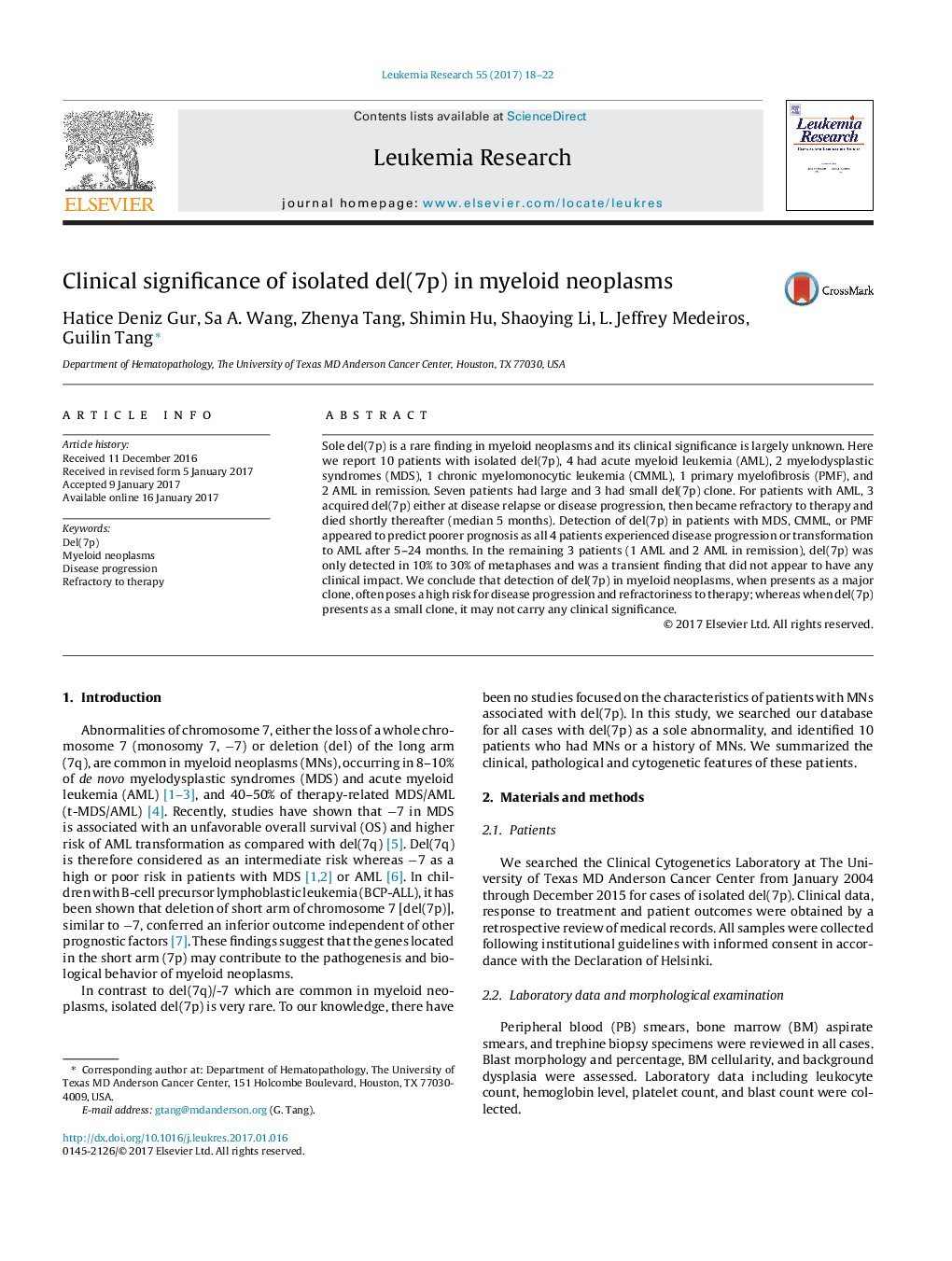| Article ID | Journal | Published Year | Pages | File Type |
|---|---|---|---|---|
| 5527907 | Leukemia Research | 2017 | 5 Pages |
â¢Sole del(7p) is rarely detected in myeloid neoplasms.â¢Large del(7p) clone is associated with disease progression and inferior outcome.â¢Small del(7p) clone could be an indolent finding.
sSole del(7p) is a rare finding in myeloid neoplasms and its clinical significance is largely unknown. Here we report 10 patients with isolated del(7p), 4 had acute myeloid leukemia (AML), 2 myelodysplastic syndromes (MDS), 1 chronic myelomonocytic leukemia (CMML), 1 primary myelofibrosis (PMF), and 2 AML in remission. Seven patients had large and 3 had small del(7p) clone. For patients with AML, 3 acquired del(7p) either at disease relapse or disease progression, then became refractory to therapy and died shortly thereafter (median 5 months). Detection of del(7p) in patients with MDS, CMML, or PMF appeared to predict poorer prognosis as all 4 patients experienced disease progression or transformation to AML after 5-24 months. In the remaining 3 patients (1 AML and 2 AML in remission), del(7p) was only detected in 10% to 30% of metaphases and was a transient finding that did not appear to have any clinical impact. We conclude that detection of del(7p) in myeloid neoplasms, when presents as a major clone, often poses a high risk for disease progression and refractoriness to therapy; whereas when del(7p) presents as a small clone, it may not carry any clinical significance.
